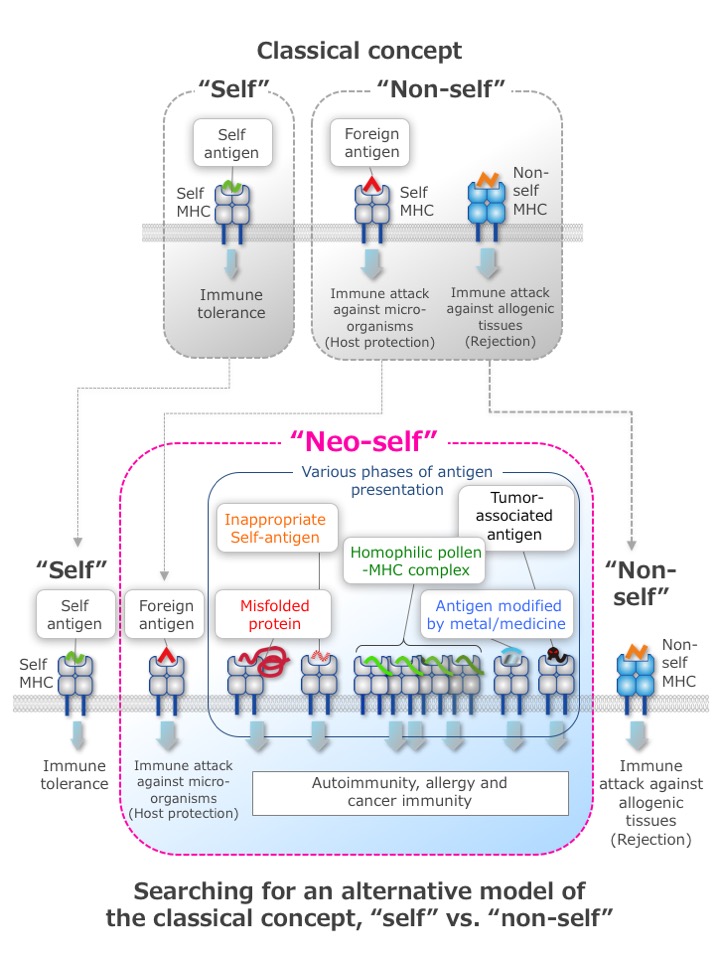Research Outline
Purpose of the Research Area
A classical concept of “self” vs. “non-self” has been a long belief of immune-cell recognition. However, recent findings suggested that there must be other forms of immune-cell recognition: first, a homophilic HLA (human leukocyte antigen) presents antigens to T cells. Second, an HLA in complex with misfolded protein can become the target of autoantibodies. Based on these findings, we are now proposing a novel concept of “neo-self” by which we are hoping to elucidate many immunological enigmas such as the mechanisms for the establishment of self-tolerance within the thymus, pathogenesis of allergy against metals and/or drugs, and inefficient cancer immunotherapy. Our aim is to reveal the pathogenesis of intractable immunological disorders by introducing many state-of-the-art technologies including structural biology, genomic analysis, imaging technique, bioinformatics and single-cell analysis.
Content of the Research Area
Many studies have been conducted with the belief that autoimmune disease and allergy are the abnormal immune responses against “self” and “non-self”, respectively, with limited success. However, during the course of research project of “HLA evolution and the disease” (FY2010-2014), it turns out that complex between peptide antigen and MHC (pMHC) is not a simple structure that had been appreciated. Instead, existence of many forms of pMHC have been found, which was unexpected in an immunological concept of “self” vs. “non-self”. Based on these findings, we will elucidate the exact nature of pMHC in a quantitative and qualitative way with a proposal of a novel concept of “neo-self”.
Expected Research Achievements and Scientific Significance
By conducting the studies with the novel concept of “neo-self” from different viewpoint, we are hoping that we will be able to elucidate the mechanisms underlying many immunological disorders such as autoimmune disease and metal and/or drug allergic reactions. We are also hoping that we will be able to establish the basic knowledge for the development of a novel cancer immunotherapy.


